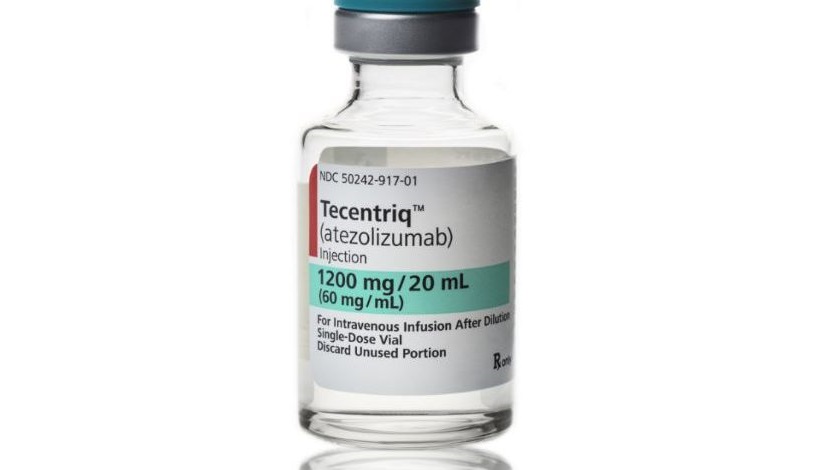Roche steps up Merck challenge with first-line NSCLC approval in US

Roche has scored another FDA approval for Tecentriq alongside chemotherapy for previously-untreated, non-squamous non-small cell lung cancer (NSCLC), raising the pressure on Merck & Co’s market-leading Keytruda.
Tecentriq plus chemo can now be used first-line in NSCLC patients who do not have epidermal growth factor receptor (EGFR) mutant or anaplastic lymphoma kinase (ALK)-positive NSCLC, adding to an earlier US approval in combination with Roche’s Avastin (bevacizumab) and chemo in this setting. Roche got European approval for the new indication in September.
The bulk of Keytruda (pembrolizumab) NSCLC sales come from the drug’s use in combination with chemo in non-EGFR and ALK-mutated patients, an indication cleared by the FDA in 2017, so Roche now has wording on Tecentriq’s label that means it can directly challenge Merck’s drug.
That said, Tecentriq is very much a latecomer in the market and analysts have previously suggested it will have its work cut out trying to dislodge Keytruda, which had sales of more than $3 billion in the third quarter alone and is on course to comfortably top $11 billion for the full year.
Tecentriq is already a blockbuster brand but a tiddler in comparison, bringing in around $1.3 billion in the first nine months of this year.
The approval from the US regulator is based on the IMpower130 study, which showed that Tecentriq given with Celgene’s Abraxane (nab-paclitaxel) and carboplatin improved survival as a first-line therapy for non-squamous NSCLC compared to chemo alone, extending it to 18.6 months from 13.9 months.
The Tecentriq combination significantly reduced risk of disease worsening or death, with progression free survival (PFS) coming in at a median of seven months compared with 5.5 months on chemo alone.
Roche had hoped to differentiate its drug from Keytruda by testing it in patients with EGFR mutant or ALK-positive NSCLC in both IMpower130 and an earlier IMpower150 trial that underpinned its use with Avastin, but the clinical data in those patients wasn’t strong enough to secure approval.
Like Keytruda, Tecentriq can be used in all patients with this type of cancer, irrespective of whether their tumours express the PD-L1 biomarker.
Tecentriq offers “new treatment options that can provide a clinically meaningful survival benefit” for people with non-squamous NSCLC, said Roche’s chief medical officer Levi Garraway.
The company has previously said that with NSCLC patients typically in a heterogeneous group it is important to have multiple regimens at clinicians’ disposal.
Not all Roche’s trials of Tecentriq in first-line NSCLC have gone smoothly, however. In 2018, the IMpower132 study was unable to show a significant improvement in survival for the drug when added to Eli Lilly’s Alimta (pemetrexed) and platinum chemotherapy.












